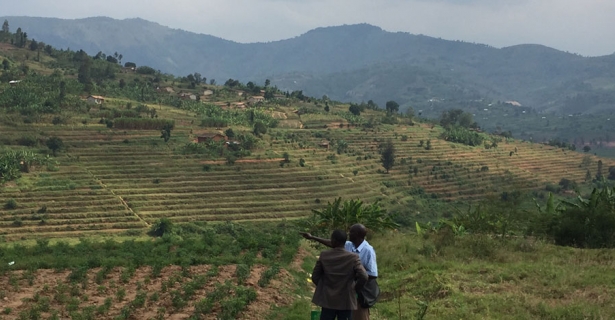Just yesterday in a blog post on the potential for the transformation of Africa - “to change faster in the next generation than any continent ever has” - through innovation and entrepreneurship spearheaded by the continent’s young population, Bill Gates singled out agriculture as a crucial arena of economic opportunity. However, he also noted that in order for the agricultural sector to become a “thriving business opportunity,” the requisite investment that has heretofore been in short supply needs to start flowing.
This lack of investment and difficulty in accessing finance is one of the most oft-cited challenges confronting small and medium enterprises (SMEs), while the other is access to markets. These obstacles frequently stand in the way of achieving growth, disempower otherwise ambitious and resourceful entrepreneurs, and lead to the collapse of many small businesses. Especially in the developing world, lack of access to markets and finance can be tantamount to death sentences for SMEs, preventing them from being able to compete in our globalized economy.
In a previous blog post, I wrote about the ‘missing middle’ and the challenge of accessing finance for those businesses that are larger than the typical micro-enterprise serviced by microfinance institutions, but smaller and perceived to be riskier than the average business whose finance and working capital needs are usually met by traditional commercial banking channels.
The challenge of accessing markets can be equally as debilitating for SMEs in the developing world. This is particularly problematic for agricultural businesses, as they are based in or acquire inputs from rural areas with poor infrastructure, and as they are dealing with perishable goods.
One promising solution that has the potential to alleviate both of these problems is the aggregator model. Especially for smallholder farmers in the developing world, aggregators could facilitate improved market access, providing them with opportunities to reach more buyers and perhaps higher prices. Furthermore, aggregators are recently being recognized as more attractive candidates for loans or other forms of financing, and thus these SMEs could aid in facilitating the spread of credit to rural areas where it is typically undersupplied.
Both of the businesses that I am working with this summer at the African Entrepreneur Collective function as aggregators. One is a milk collection center (MCC) that gathers (“bulks”) milk from small-scale dairy producers (including families that may own only one cow) in an area in Rwanda’s Southern Province. The MCC processes the milk from these producers into ikivuguto, a fermented milk drink similar to kefir that is very popular in Rwanda and then sells the finished product to purchasers up the value chain.
The other business is a chili pepper aggregator and processor. The business serves as a guaranteed purchaser for smallholder farmers through contract farming, whereby the producer agrees to grow and sell a certain amount of chili peppers to the processor. This relationship provides the farmer with a guaranteed buyer and the processor with a more predictable supply of raw input products. Additionally in this case, the chili peppers are processed into chili powder destined for international markets. Thus the smallholder producers that contract with this business have the chance to become part of an export value chain – a valuable opportunity that only about 10% of smallholders currently have, according to a report from Dalberg.
Both of these enterprises provide smallholder farmers with access to markets and value chains that would otherwise likely be out of reach. Through aggregation, some of the challenges and disadvantages faced by smallholder farmers operating in a globalized economy are overcome, as economies of scale are achieved by collecting and “bulking” the yields of a number of producers together to be brought to market collectively. By supporting agribusinesses that function as aggregators, organizations such as African Entrepreneur Collective can indirectly contribute to improving the livelihoods of smallholder farmers and help advance the agricultural sector towards becoming the “thriving business opportunity” that Mr. Gates foresees.

